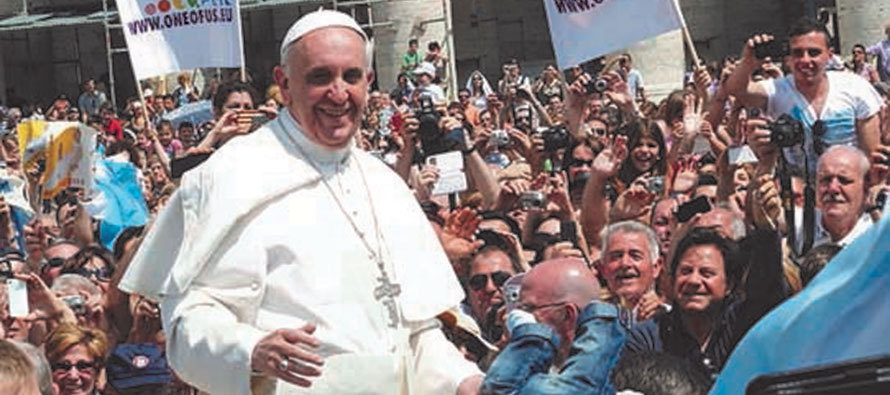
About the Priesthood
A diocesan priest can also be described as a parish priest, or one who works within and serves a particular parish within a diocese. Diocesan priests are very active people, with friends, hobbies and recreational activities, just like anybody else. It’s said that a diocesan priest “is someone who lives with the people and each becomes a part of the other’s life.”
The role of a diocesan priest is to:
- Serve the individuals and families within his parish
- Be the spiritual leader of that community
- Some diocesan priests serve the diocese in schools, as teachers or chaplains, in hospitals or in prisons.
Promises
A diocesan priest commits himself to a celibate life and to obedience to the bishop. Both celibacy and obedience are rooted in of Christ who offered Himself in loving service of the Father. Celibacy calls for a spirit of selflessness and is a sign of the ultimate call to union with God. Obedience fosters a willing surrender to the will of God in all circumstances.
More Than a Job
Deciding on a priestly vocation is, in one sense, a career choice like any other. Skills and attributes include:
- Strong interpersonal abilities
- Leadership
- Charity towards others
- Positive self-image
- Good health
- Emotional stability
But being a priest is more than a job – it’s a way of life, requiring strong personal and professional commitment that is reflected in all that you do – all that you are. A commitment to a daily life of personal prayer is at the heart of what it means to be a priest. There are many benefits and rewards in the priesthood. The opportunity to serve God and bring hope, joy and healing into the lives of many people brings with it a deep happiness and a sense of peace.
A Special Role
The Eucharist is the centre of a priest’s life and ministry. In addition to the celebration of the Holy Eucharist, a diocesan priest is ordained to:
- Offer pastoral service
- Proclaim God’s word
- Minister the Sacraments (the visible signs of God’s presence in the Christian community), e.g. celebrate baptism, witness marriages, bring comfort at funerals, and bring God’s healing presence to people through the Sacrament of Penance (Confession) and the Sacrament of the Sick.
- Diocesan priests set aside some time each day for personal reflection and private prayer.
Visits to the sick and troubled, working on various parish projects and activities, and counselling for individuals, married couples or families are also part of his role.
About The Permanent Diaconate
The first responsibility of the deacon is to be an effective visible sign of Christ who came to serve rather than to be served. Although the ministry of the deacon may be exercised on a part-time basis, he remains at all times a deacon and he is called, in his life-style, to reflect this.
The ministry of the deacon is an expression of his being, as the documents say, an icon of Christ the servant. The areas of ministry which may be entrusted to deacons fall under three general headings, Altar, Word and Charity. They include:
- Assisting the priest at the celebration of the Eucharist
- Bringing the Eucharist to the sick at home and in hospitals
- The celebration of Baptism
- Celebrating marriages (with the appropriate delegation)
- Presiding at funerals
- Proclaiming the Gospel at the Liturgy
- Preaching the homily
- Facilitating the development of lay ministry
- Visiting the sick or bereaved
Candidates for the permanent diaconate may be married or unmarried. The upper age limit for ordination is sixty-five years of age. The diaconate is an active ministry, not an honorary position. Being a deacon involves a serious level of commitment, both at the stage of preparation and after ordination.
As a general rule, deacons exercise a voluntary, part-time ministry, and amount of time given to this ministry will depend to some extent on the individual and family circumstances of the deacon concerned. Some deacons, if they have taken early retirement or reduced their work commitments, may be able to offer a greater time commitment.
Deacons who exercise a part-time ministry are entitled to work in their chosen career to support themselves and their families. It is important, however, that their employment is both practically and morally consistent with the exercise of ordained ministry.
For more information, visit the Diocese of Armagh click here.
If you have an interest finding out more about the path to priesthood or the permanent diaconate in Armagh Diocese, please contact Fr. McAleer, click here.
You are also very welcome to contact our Diocesan Vocations Director: Fr. Peter McAnenley Armagh Diocese see here.

Religious life ought to promote growth in the church by way of attraction. The church must be attractive. Wake up the world! Be witnesses of a different way of doing things, of acting, of living! . . . It is this witness that I expect of you. Religious should be men and women who are able to wake the world up.
—Pope Francis, meeting with the Union of Superiors General, November 29, 2013